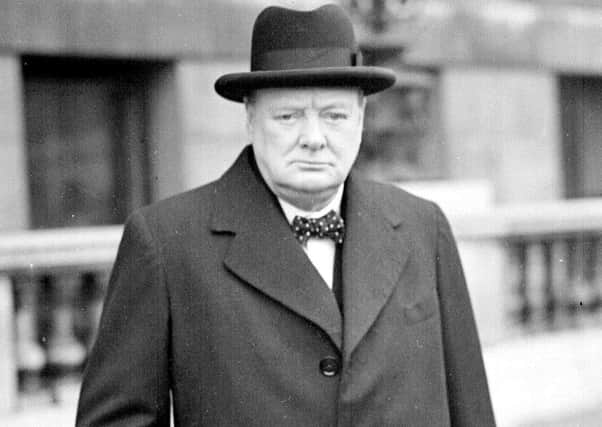Great men and women have earned a place in our history – Alastair Stewart


One of Scotland’s lesser-known contributions to the world is the Great Man Theory. The concept is a way of understanding history as a string of influential men and women who shaped the course of events. Hugely popular in the 19th century, it’s primarily attributed to our very own Thomas Carlyle and his series of lectures on heroism (later published as a book in 1841).
The idea has fallen out of fashion somewhat, usually overtaken by historical narratives focusing on ‘history from below’ or a ‘people’s history’. We see remnants of it today, certainly surrounding Winston Churchill as the ‘man who won the Second World War’ or Wellington’ as the man who won Waterloo’. The reality is thousands, often millions played their part – but still, in the epicentre, we find our great leaders.
Advertisement
Hide AdAdvertisement
Hide AdAnd we need to bring it back. Unabashedly. British history is replete with genuine heroes, old and modern, and they’re under siege by some idea of a flawless superman – somehow you can’t have idols unless their life has been wholly, entirely and exclusively without blemish.


The Flashman Papers by George Macdonald Fraser brilliantly eviscerates this idea. Presumed Victorian hero, ol’ Flashy is a poltroon, cad, bounder and utter disgrace. But no one knows it. Every effort to cower and run is misunderstood because everyone thinks he’s the model hero. He also has moments of genuine heroism, loath as Flashman might be to be in the firing line. Fraser’s wit and genius are not only in dissecting imperial hypocrisy but taking to task puritans who cast the first stone.
Fraser provides an excellent lesson on perception-reality that we need more of today. It takes critical judgement, knowledge and ultimately a personal preference to cut through the noise and form your own opinion. Moralising is not an end in itself.
Some were quick to make odious jokes at the expense of MPs who appeared on television with books about Adolf Hitler on their shelves. That the first reaction is to note that, rather than consider that history should be required reading, is telling. It’s also sadly indicative of the time we live.
Advertisement
Hide AdAdvertisement
Hide AdHistory, more often than not, really is about heroes and villains. Great Man Theory works both ways – the counterfactual ‘what if’ questions over killing baby Hitler and watershed moments in battles, medicine, science and social milestones.
By creating a hostile environment to read and study men and women who are labelled controversial, we risk alienating any full consideration of them in the first place. The question we must never lose site of is what is truly evil, and what are attitudes which change as the centuries roll on – Churchill himself noted morality changes like women’s fashions from long to short skirts.
History needs a far more robust place in the hearts and minds of school curriculums. Great Man Theory needs to be a guiding point – not to enslave people to a mindset where heroes are untouchable, but to foster precisely the kind of critical thinking required to prevent hagiography and slander in turn.
“Study history, study history,” said Churchill. If we lose the ability to create a discerning generation that can’t get past opinionated social posts or articles of one man’s opinion like this (including this one), we are doomed to lose our moral grounding.
Alastair Stewart is a freelance writer and public affairs consultant. Read more from Alastair at www.agjstewart.com and follow him on Twitter @agjstewart
Comment Guidelines
National World encourages reader discussion on our stories. User feedback, insights and back-and-forth exchanges add a rich layer of context to reporting. Please review our Community Guidelines before commenting.